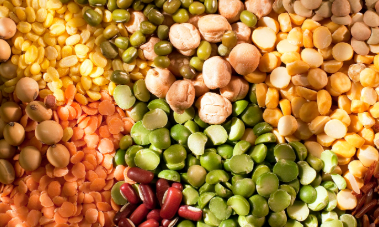A new research that suggests possible revisions to U.S. dietary standards has many recommendations, including consuming less processed and red meat and increasing intake of beans, peas, and lentils as protein sources.
The latest set of standards is anticipated to take effect next year, and they are updated on a five-year timetable. The Agriculture Department’s advisory council, which consists of 20 professors from the fields of medicine and public health, issued the findings on Tuesday.
The group said that the revised recommendations, which would be in force until 2030, should place greater emphasis on plant-based proteins, encourage individuals to consume more whole grains, and reduce their consumption of processed foods, sugar-filled beverages, and salt.
The vice chair of the advisory council, Cornell University professor of maternity and child nutrition Angela Odoms-Young, stated, “There is strong evidence to suggest that a dietary pattern that is high in beans, peas, and lentils is associated with lower chronic disease risk.”

Beans, peas, and lentils are classified as both vegetables and protein items under the current dietary standards. To encourage individuals to consume more plant-based protein, however, the new paper suggests shifting them from the vegetable category to the top of the list of protein meals.
A assessment of existing research on the long-term relationships between food and the risk of chronic diseases including diabetes and cardiovascular disease served as the basis for the recommendations.
Diets heavy in processed red meat (such as bacon and hot dogs) have been linked in the past to an increased risk of developing diseases including dementia and cancer. The health consequences of unprocessed red meat, such as home-cooked steaks or lamb chops, are still up for debate, but years of study and diet rankings continually show that the Mediterranean diet is the healthiest.
With many servings of fruits and vegetables each day, along with whole grains, legumes, nuts, olive oil, and seafood, that eating pattern is mostly plant-based. Red meats are consumed seldom. A decreased risk of cardiovascular disease and its associated diseases, such as obesity, high cholesterol, and hypertension, has been associated with the diet.
In the United States, heart disease is the leading cause of death. That might be addressed by substituting plant-based protein sources for some red and processed meats, according to Odoms-Young.
She recommended that individuals experiment with “meatless Mondays,” which involve cutting back on meat portions or adding additional beans, peas, or lentils to meals they are currently preparing.

“That’s not saying that you can’t eat animal protein, but how do you have a diet where you can increase the amount of plant-based protein in the diet,” she continued.
Additionally, the paper suggests that people raise their diet of whole grains to 50% of all grains consumed and reduce their intake of salt and sugary beverages. According to the findings, eating a lot of sugar and salt and not enough whole grains has a detrimental impact on health outcomes.
“When we look at the evidence around how those things impact people’s health, we see that the major diseases, chronic diseases, that are responsible for preventable deaths are linked to those excess consumptions,” stated Cheryl Anderson, another advisory committee member and dean of the Herbert Wertman School of Public Health and Human Longevity Science at the University of California, San Diego.
A 2019 study indicated that excessive intake of sugar-sweetened drinks was associated with a higher risk of Type 2 diabetes, while another study the same year found that excessive salt consumption was associated with a higher risk of hypertension. In contrast, the Mayo Clinic states that whole grains can help reduce the risk of heart disease, diabetes, and other diseases.
According to Odoms-Young and Anderson, committee members took into account socioeconomic status and grocery store accessibility, among other factors, while drafting the suggested adjustments in order to make them fair, workable, and accessible to a variety of groups.
“We are making these recommendations with the hope that no matter where people live, learn, work, play or pray, they would be able to follow the guidance,” Anderson stated.
The idea, according to Odoms-Young, is only an initial step because “most of the guidelines people don’t meet right now.”
“More generally than the report, U.S. leaders should think about how to put policies and programs in place that help people meet the nation’s dietary guidelines,” she added.
A 60-day public comment period has begun, and the report has been sent to the Department of Agriculture and the Department of Health and Human Services for evaluation. Ultimately, it is up to the government to determine whether to implement some or all of the suggestions.





